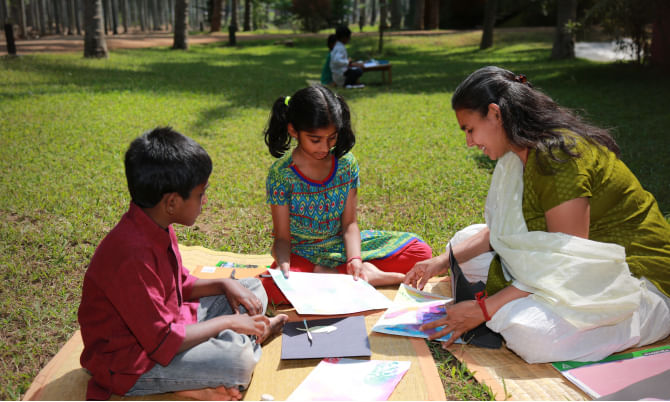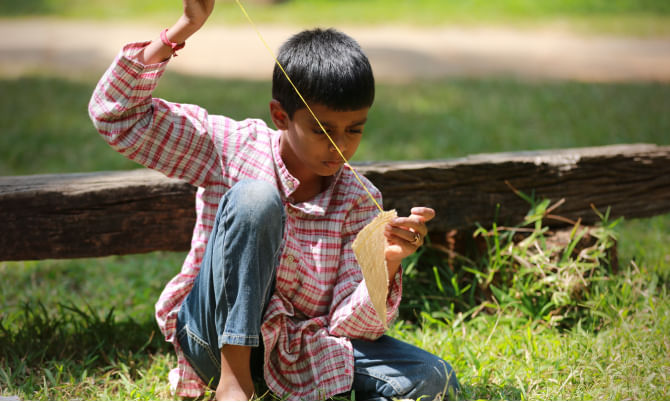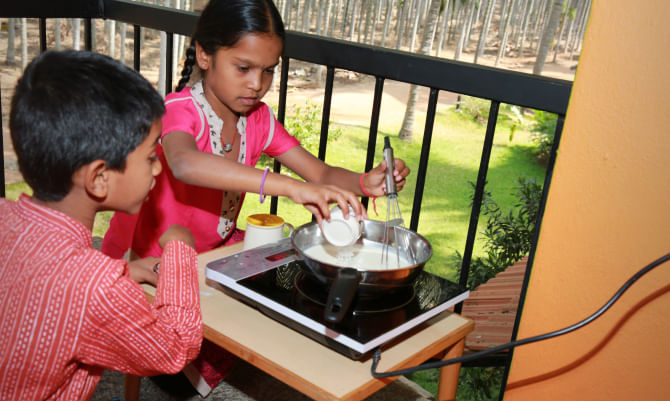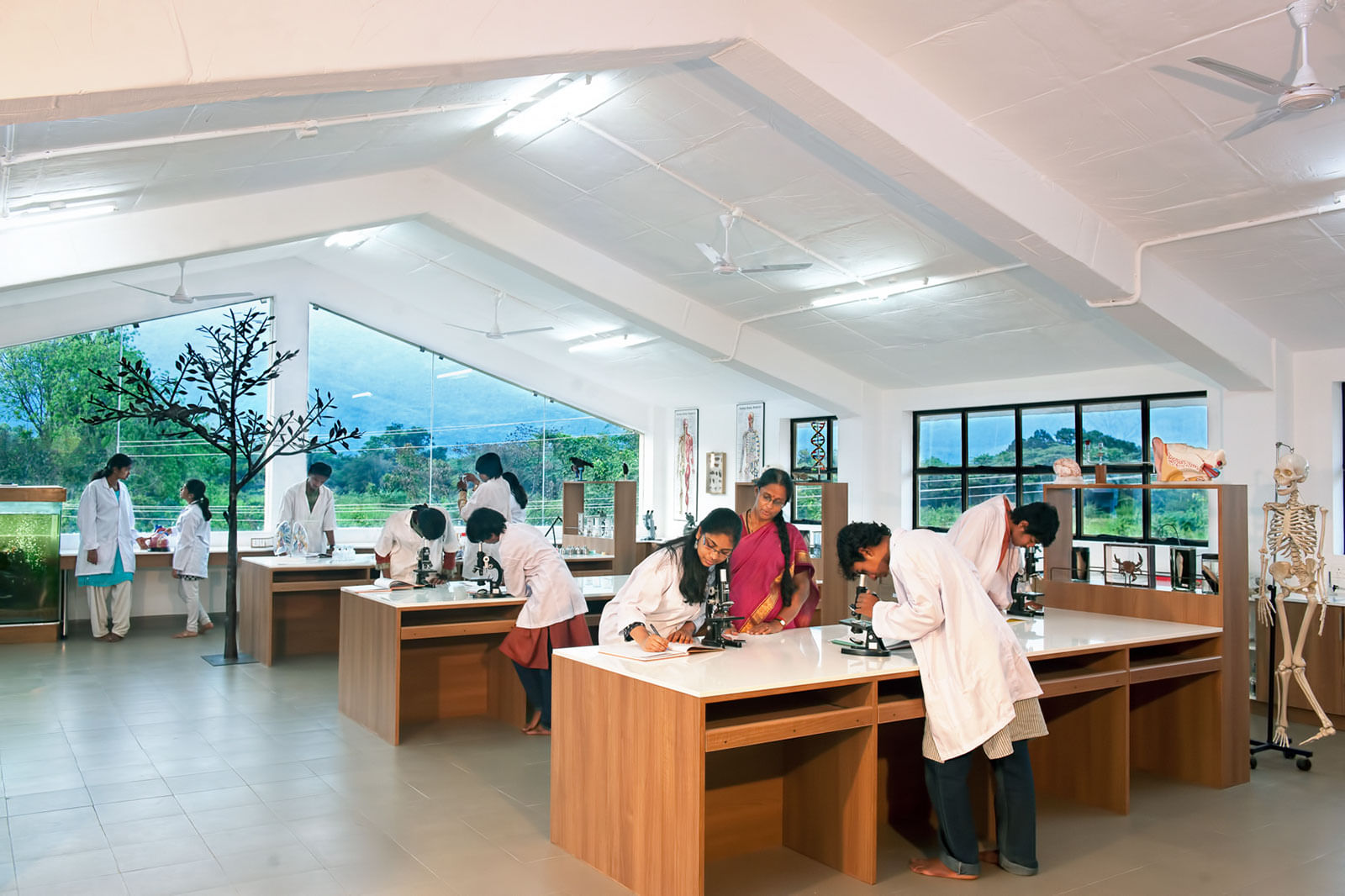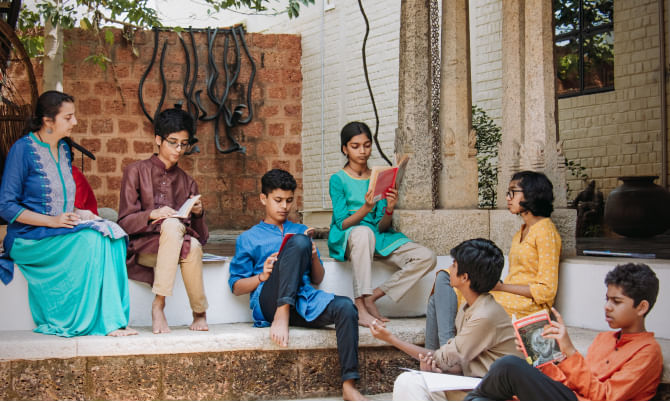Academic model
Junior School
In the Junior School, the effort is to sow seeds of learning and inquiry and nurture students. Boys and girls aged between 7 and 10 live with their house parents, who are also their teachers, in a multifaceted house that functions as a classroom. Within these houses, the essence of the "Home School" comes alive. In a home-like atmosphere, siblings of all ages learn and absorb life skills and values.
The Junior School combines traditional methods of teaching with Montessori principles of education. The teacher is less an instructor and more of a guide or facilitator in the child's learning process. Students discover the interconnectedness of all areas of study through engaging stories and themes, and they have the freedom to pursue concepts in greater depth.
The curriculum is deliberately kept flexible at this age to ensure that the children develop basic concepts and skills in various subjects, including languages (English, Tamil, Hindi, and Sanskrit), mathematics, environmental studies, and basic science.
There are no examinations in the Junior School, and the child's progress is evaluated through close observation and monitoring of the child's day-to-day activities in a seamless manner.
Middle School
The Middle School is a transitional period for students entering their young adolescent phase. Boys and girls, aged between 10 and 13, begin to develop mature and abstract ways of thinking. They continue to build upon the skills acquired in Junior School while preparing for the transition to the Senior School.
Similar to the Junior School, students in the Middle School study in vertical age groups, and their homes serve as their learning spaces. They encounter a more structured syllabus, and the teaching pedagogy blends various best practices to facilitate both guided and self-directed learning. The classroom operates with a combination of timed instructional periods and fluid learning blocks.
Within this latticed approach, there are specific points of integration. A cohesive 3-year curriculum allows students to discover the interrelationships among different disciplines and and develop key learning skills in every subject. As in the Junior School, there are no yearly examinations. The student follows a 3-year plan embedded with regular assessments and evaluations that gauge proficiency in key content and skills.
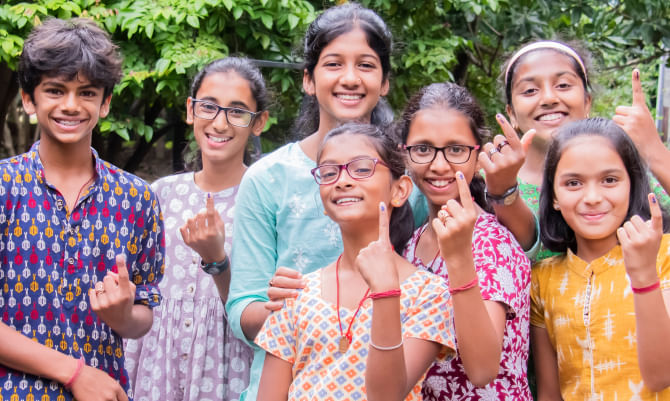

Senior School 1 - Classes 8, 9 & 10
Senior School 1 comprises teenagers between the ages of 13 and 15. The focus at this stage is on helping students find their voices and chart the oft-challenging adolescent terrain. At this level, students study in horizontal class-wise groups, receive instruction from subject matter experts, and appear for formal examinations.
Upon entering class 9, students select their subjects based on the groupings offered by the CISCE and the school's available options, considering their interests, aptitudes, and future plans. They complete this 3-year program with the ICSE board examination at the end of class 10.
The school's goal is not solely to prepare students for board examinations. Hence, it does not limit itself to the prescribed syllabus. The emphasis is on achieving conceptual clarity, applying learning to real-life situations rather than memorizing facts, and finding opportunities to align with the broader aims of the school.
Senior School 2 - Post-10 Program
The 3-year post-10 program views students as young adults undergoing physical, intellectual, social, and emotional transitions. This program was created to appropriately and adequately respond to these changes and support students in navigating this threshold of adulthood.
The program consists of various components beyond core academic courses required by the Council. These components encompass foundational practical life skills modules, work placements, internships, and cultural immersion trips exploring different aspects of India. Practical life skill modules vary each year, covering topics like home repair, financial literacy, survival cooking, first aid, media literacy, MS Office essentials, public speaking, and professional communication.
For academic subjects, the school follows an internal scheme of continuous and comprehensive evaluation. The evaluation parameters vary based on the subject's nature, and are determined at the department level for each subject.
Students are expected to fulfill their commitments and responsibilities, and chart out a course of study for themselves. They conclude their academic journey at Isha Home School by taking the ISC examinations while simultaneously seeking greater clarity regarding the next phase of their educational and life journeys.


